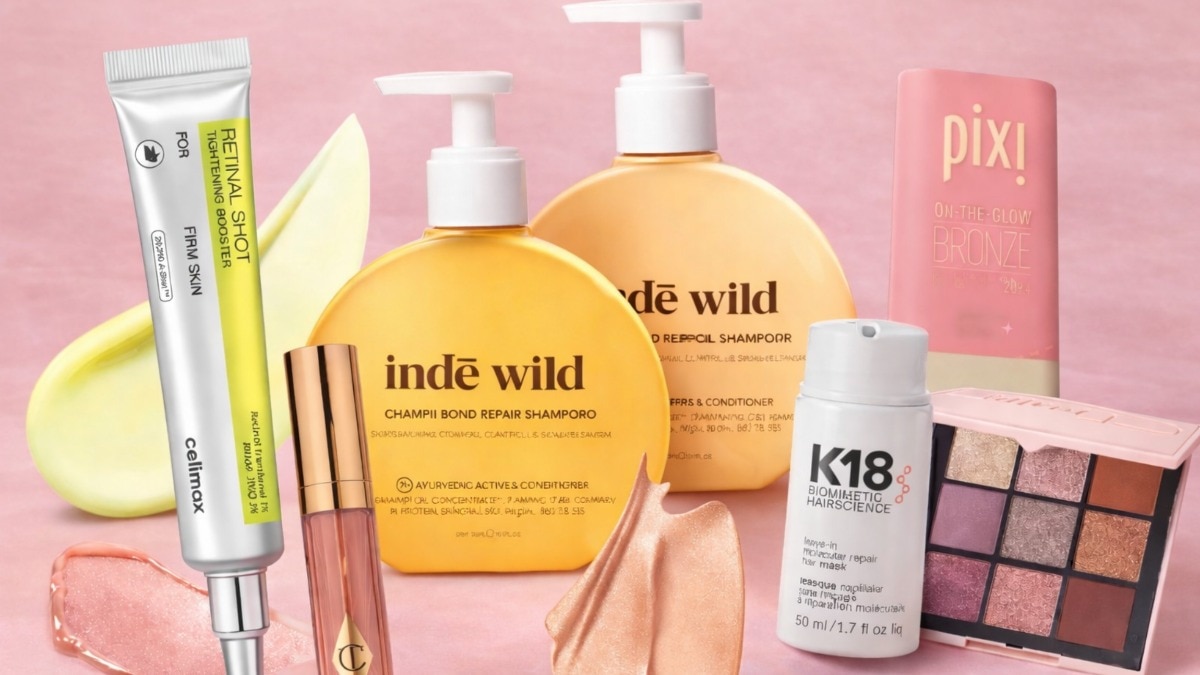
What is perimenopause and how it can be dealt with
Suck it up” has long been the mantra when it comes to the Change. But a new generation of women, armed with tools from emerging beauty and wellness brands, is reforming the way we treat and talk about this major life stage.


Most women associate menopause with the end of menstruation and the beginning of hot flashes. What they may not anticipate, however, are all of the other related side effects, including brain fog, depression, acne, joint pain, mood swings, night sweats, insomnia, dry skin, reduced sex drive, hair loss, and more. For many of the 55 million menopausal women in the US (or the estimated 1.3 million who will join them this year), these symptoms catch them by surprise.
“Only about 20 per cent of physicians get training in menopausal treatments,” says Kourtney Sims, an ob-gyn in Houston, who adds that most medical schools—and ob-gyn residencies—spend minimal time focusing on this part of a woman’s life. And if doctors aren’t adequately educated on menopause symptoms and management, how can they help patients navigate them?
Another reason women have, historically, been ill prepared: no one talks about it. What happens at the start of menstruation is covered in middle-school health class, but women don’t get a primer on what to expect at the end. And then embarrassment, fear, and confusion keep many from broaching the topic with their doctors or sharing concerns with friends or family. Thankfully, though, things seem to be changing. As Gen Xers and older Millennials grapple with their fluctuating hormones, they are taking a more open, active approach to their treatment.

“My (menopausal) patients are incredibly thirsty for knowledge,” says Alyssa Dweck, an ob-gyn in Mount Kisco, New York. She will often suggest small tweaks to her patients’ daily habits to help them cope, like adopting a low-glycemic Mediterranean diet to temper weight gain or upping cardio exercise to moderate mood swings. “Many patients are confused because they still have periods but experience unfamiliar symptoms like mood swings. They don’t recognise themselves,” she says. “Explaining what’s happening helps.”
So, what is happening? “Your body is breaking up with levels of hormones it has had for 30 years or longer,” says Sims. “It’s no surprise it’s upset.” The hormonal roller coaster typically starts between a woman’s late 30s and her mid-40s (though it can begin earlier), and it may last as long as 15 years. When women say they are going through menopause, that usually means they’re experiencing perimenopause. During this stage, estrogen and progesterone begin to decline, ovulation can become erratic, and periods may stop arriving like clockwork. It’s also when the cascade of symptoms outlined earlier may begin,
“I had no idea brain fog had anything to do with menopause,” recalls Rochelle Weitzner, founder of menopause skincare brand Pause Well-Aging. “I wondered if I had early-onset Alzheimer’s.”
To help monitor the symptoms of perimenopause, some women have begun experimenting with at-home tests to check their levels of estrogen, progesterone, and other hormones associated with the transition. These kits typically require saliva or a blood sample via a finger prick, then are analysed at home or mailed to a lab.
“Menopause itself is really just one day: The day you’ve gone 12 consecutive months without a period,” explains Weitzner. After that, you’re postmenopausal, though not, alas, symptom-free. While hormones won’t seesaw like they did in perimenopause, your body now has to function with sustained lower levels of estrogen and progesterone. This means some symptoms, like dry skin or thinning hair, become chronic issues.

Hormone replacement therapy (HRT) can help mitigate symptoms by upping estrogen levels via a pill, patch, or topical cream—but HRT isn’t without risks, including increasing the chance of certain kinds of cancer. Thus, it’s encouraging that it’s not the only option. A growing number of beauty and wellness brands have developed products and tools to help manage a menopausal journey. “Women are looking for some power and ownership in this conversation,” says Sims.
Feature Image: Pinterest
Images: Pinterest
This piece originally appeared in the October 2022 print edition of Harper's Bazaar USA.










